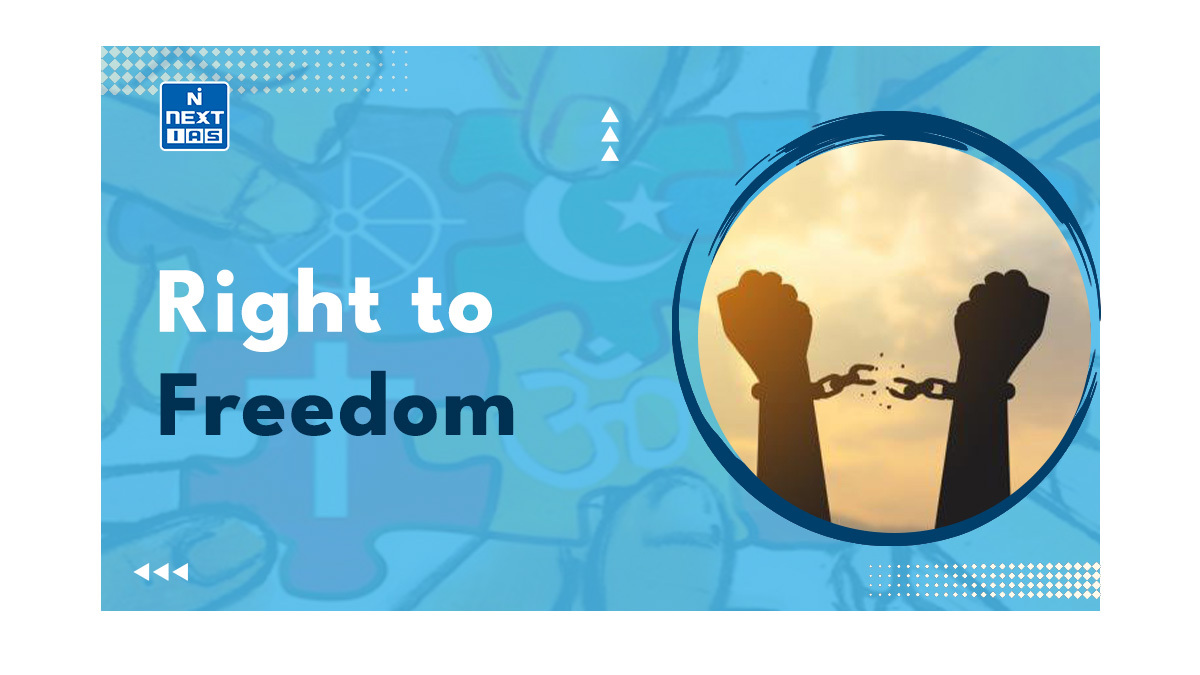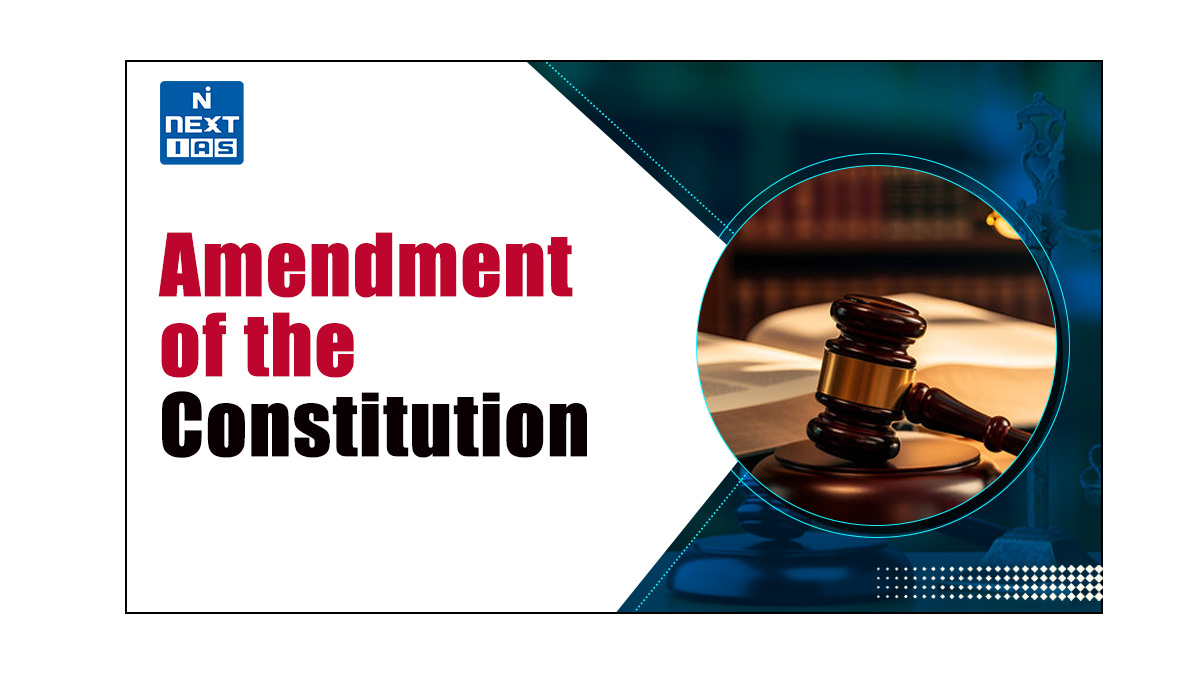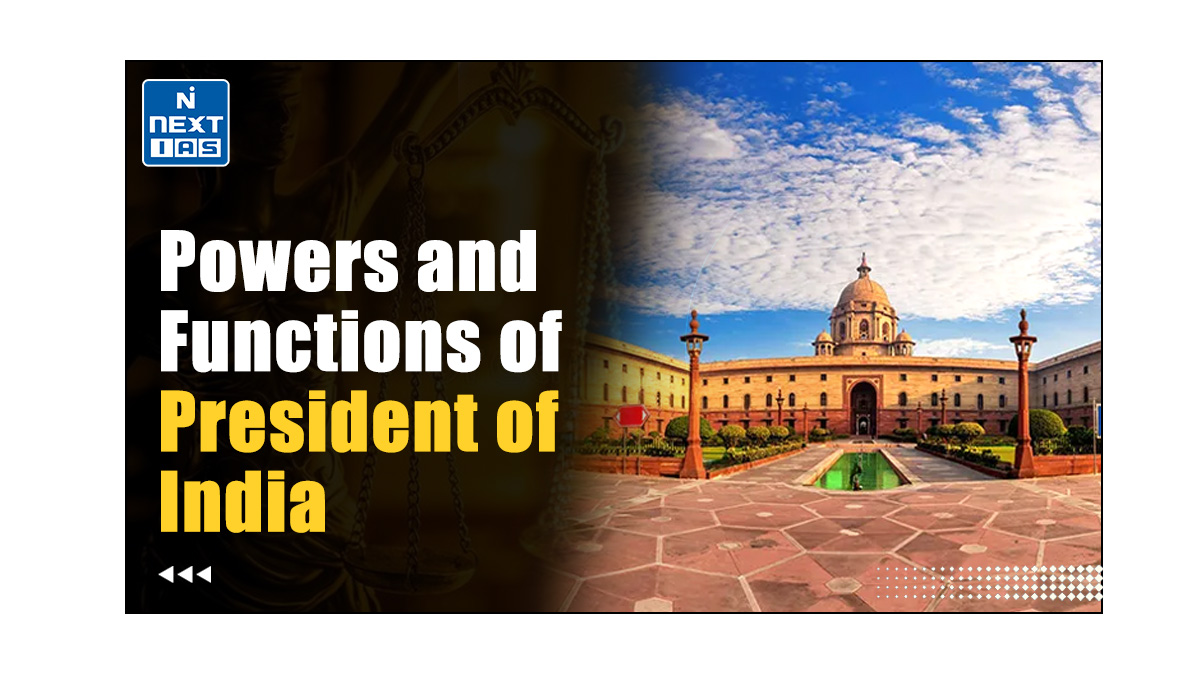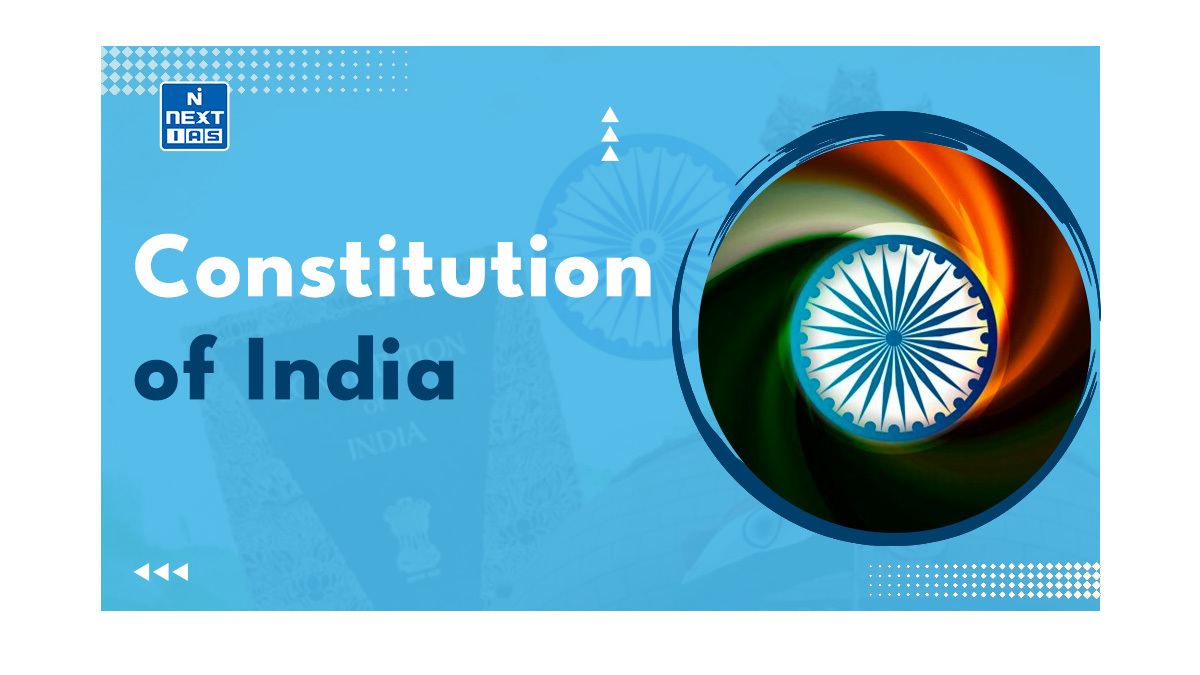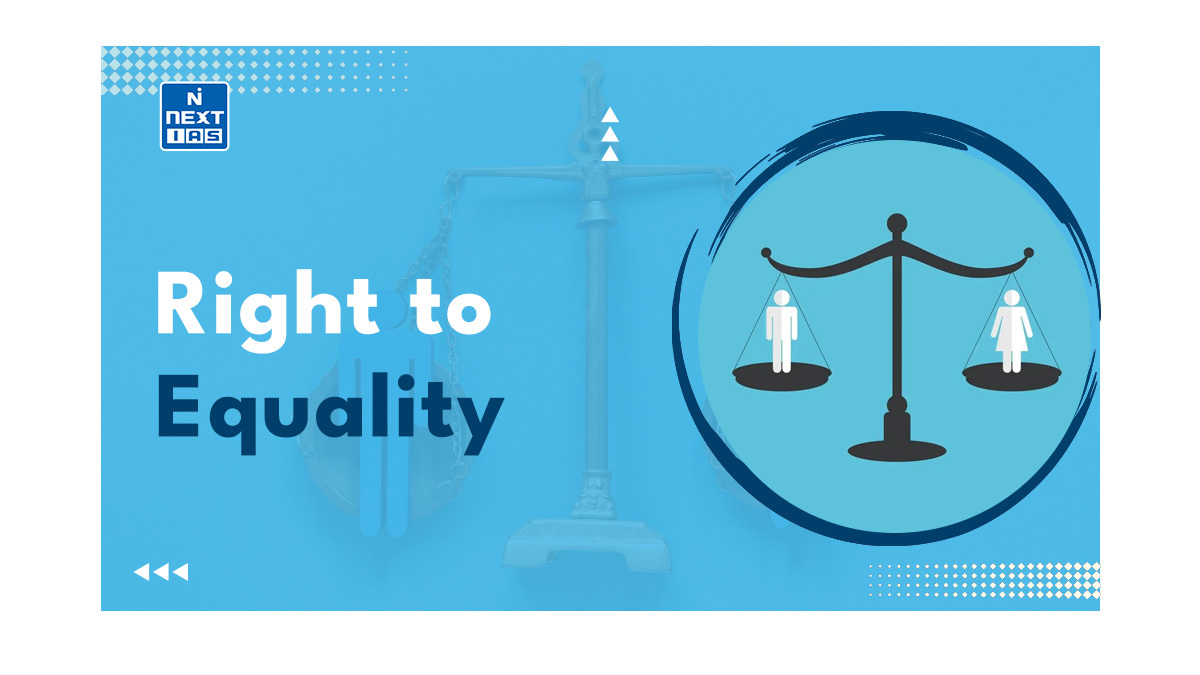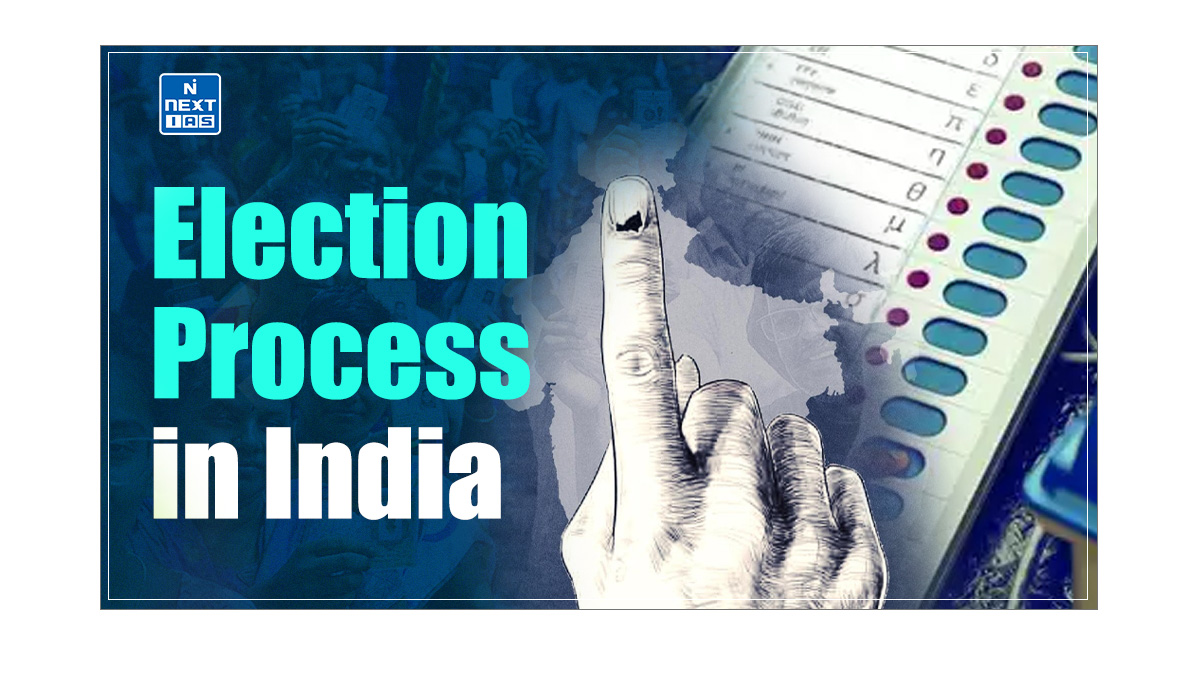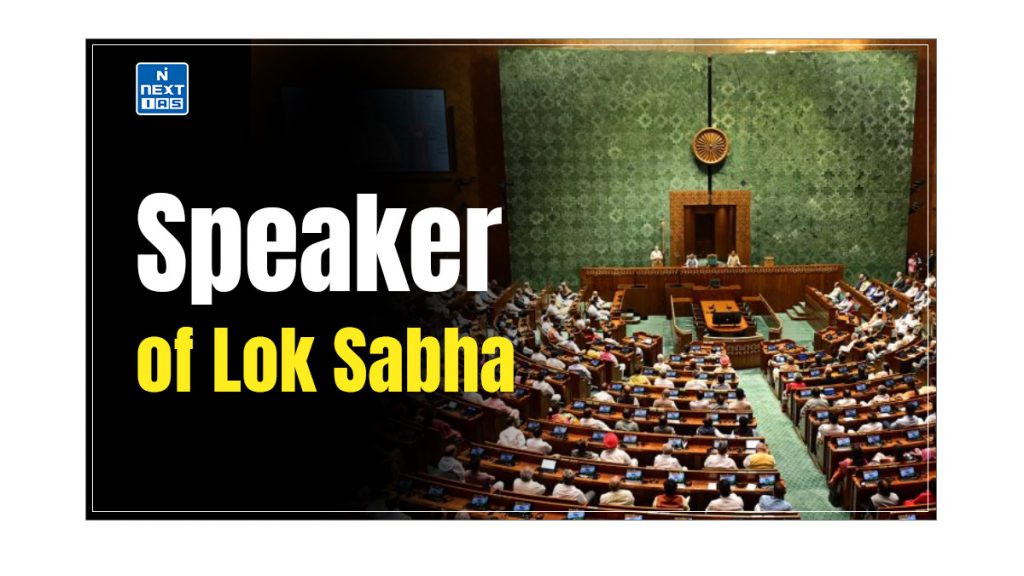
As the Presiding Officer of the highest Panchayat of the country, the Speaker of Lok Sabha holds a pivotal position in the Indian parliamentary system. By upholding parliamentary rules and conventions, the Speaker plays a crucial role in the smooth functioning of the government. This article of NEXT IAS aims to study in detail the Speaker of Lok Sabha, including its election procedure, tenure, role, powers, functions, significance, and other related aspects.
About Speaker of Lok Sabha
- The Speaker of Lok Sabha is the Presiding Officer of the Lower House of Parliament of India – the Lok Sabha.
- The Speaker is the constitutional and ceremonial head of the Lok Sabha.
- The Speaker is responsible for maintaining order and decorum in the house, conducting its business, and ensuring that the legislative process is carried out smoothly.
- Additionally, the Speaker represents the Lok Sabha in its relations with the President of India, the Rajya Sabha (the Upper House), and other external bodies.
| About Presiding Officers of Parliament – The Presiding Officers of Parliament refer to the officials who oversee and regulate the proceedings of the Houses of Parliament (Lok Sabha and Rajya Sabha in case of India). – They are responsible for upholding parliamentary rules, maintaining order, managing debates, and conducting the legislative process as per the established procedures within their respective houses of the Parliament. – Overall, their role is to ensure that the legislative body functions smoothly and efficiently. |
Read our detailed article on Presiding Officers of Indian Parliament.
Election of Speaker of Lok Sabha
- The Speaker of Lok Sabha is elected by the Lok Sabha from amongst its members.
- This means only sitting members of the Lok Sabha are eligible to be elected as Speaker of Lok Sabha.
- The date of election of the Speaker is fixed by the President of India.
- The date is kept as soon as possible after the first sitting of the House.
Tenure of Speaker of Lok Sabha
- The Speaker remains in office during the life of the Lok Sabha.
- However, the Speaker has to vacate his/her office earlier in any of the following three cases:
- If he/she ceases to be a member of the Lok Sabha,
- If he/she resigns by writing to the Deputy Speaker, and
- If he/she is removed by a resolution passed by a majority of all the then members of the Lok Sabha (i.e. an Effective Majority).
- Whenever the Lok Sabha is dissolved, the Speaker of Lok Sabha does not vacate his/her office and continues till the newly-elected Lok Sabha meets.
| Note: If the office of the Speaker falls vacant, the Lok Sabha elects another member to fill the vacancy. |
Oath and Affirmation of Speaker of Lok Sabha
The Speaker of Lok Sabha, while assuming his/her office, does not make and subscribe to any separate oath or affirmation.
Their oath as a Member of Parliament suffices for his/her role as Speaker of Lok Sabha.
Removal of Speaker of Lok Sabha
- The Speaker of Lok Sabha can be removed by a resolution passed by the Lok Sabha by an Effective Majority (i.e. a majority of the total membership of the House excluding the vacant seats).
- A motion of removal of the Speaker of Lok Sabha can be moved only after giving 14 days’ advance notice to the Speaker.
- This motion of removal can be considered and discussed only when it has the support of at least 50 members.
- When a resolution for the removal of the Speaker of Lok Sabha is under consideration of the House, he/she cannot preside at the sitting of the House, though he/she may be present in the House.
- However, he/she can speak and take part in the proceedings of the House at such a time and vote in the first instance, though not in the case of an equality of votes.
Salary and Allowances of Speaker of the Lok Sabha
The Speaker of Lok Sabha is entitled to a regular salary and allowance fixed by the Parliament.
The salary and allowances of the Speaker of Lok Sabha are charged on the Consolidated Fund of India and hence are not subject to the annual vote of Parliament.
Role of Speaker of Lok Sabha
- The Speaker is the head and the representative of the Lok Sabha.
- He/she is the guardian of the powers and privileges of the members, its committees and the House as a whole.
- He/she is the principal spokesperson of the House.
- He/she is the final deciding authority in all Parliamentary matters.
Powers and Functions of Speaker of Lok Sabha
- He/she maintains order and decorum in the House for conducting its business and regulating its proceedings. This is his/her primary responsibility and he/she has final power in this regard.
- Within the House, he/she is the final interpreter of the provisions of:
- The Constitution of India,
- The Rules of Procedure and Conduct of Business of Lok Sabha, and
- The Parliamentary Precedents.
- He/she adjourns the House or suspends the meeting in the absence of a Quorum.
- The Quorum to constitute a meeting of the House is one-tenth of the total strength of the House.
- He/she does not vote in the first instance. But he/she can exercise a casting vote in the case of a tie.
- In other words, only when the House is divided equally on any question, the Speaker is entitled to vote.
- Such a vote is called a casting vote, which aims to resolve a deadlock.
- He/she presides over a joint sitting of the two Houses of Parliament.
- Such a sitting is summoned by the President to settle a deadlock between the two Houses on a bill.
- He/she can allow a ‘secret’ sitting of the House at the request of the Leader of the House.
- When the House sits in secret, no stranger can be present in the chamber, lobby or galleries except with the permission of the Speaker.
- He/she decides whether a bill is a Money bill or not and his/her decision on this question is final.
- When a Money Bill is transmitted to the Rajya Sabha for recommendation and presented to the President for assent, the Speaker endorses on the bill his/her certificate that it is a money bill.
- He/she decides the questions of disqualification of a member of the Lok Sabha, arising on the ground of defection under the provisions of the Tenth Schedule.
- As per the Supreme Court’s ruling in the Kihoto Hollohan vs Zachillhu Case of 1992, the decision of the Speaker in this regard is subject to judicial review.
- The Speaker of Lok Sabha acts as the Ex-Officio Chairman of the Indian Parliamentary Group which is a link between the Parliament of India and the various Parliaments of the World.
- He/she acts as the Ex-Officio Chairman of the Conference of the Presiding Officers of legislative bodies in the country.
- He/she appoints the Chairman of all the Parliamentary Committees of the Lok Sabha and supervises their functioning.
- He/she is the Chairman of:
- The Business Advisory Committee,
- The Rules Committee and
- The General Purposes Committee.
| Note: The Speaker of the Lok Sabha derives his/her powers and duties from three sources: – The Constitution of India, – The Rules of Procedure and Conduct of Business of Lok Sabha, and – Parliamentary Conventions i.e. residuary powers that are unwritten or unspecified in the Rules. |
Significance of Speaker of Lok Sabha
The Speaker of Lok Sabha holds significant importance in the Indian parliamentary system. The major significance of the Speaker of Lok Sabha can be seen as follows:
- Orderly Functioning of House – The Speaker ensures orderly conduct of proceedings, maintaining decorum, and upholding the rules of the House.
- Impartiality – The Speaker is expected to maintain impartiality and fairness while conducting the business of the house. They are responsible for giving all members an equal opportunity to express their views.
- Decision-Making – The Speaker makes crucial decisions on matters of parliamentary procedure, interpretation of rules, and maintaining discipline among members.
- Committee Appointments – The Speaker plays a role in appointing members to various parliamentary committees, which are essential for the functioning of the legislative process.
- Custodian of Parliamentary Privileges – The Speaker safeguards the privileges of the members and the dignity of the house, ensuring that parliamentary proceedings are conducted with respect and integrity.
- Bridge between House and Government – The Speaker represents the collective voice of the Lok Sabha. He/she acts as a bridge between the members and the government, ensuring that the concerns of the members are addressed.
- Symbol of Authority – The Speaker symbolizes the authority of the Lok Sabha and is responsible for upholding the sanctity of the parliamentary institution.
Provisions ensuring Independence & Impartiality of Speaker of Lok Sabha
Being vested with great powers and responsibilities, it is pertinent to ensure the independence and impartiality of the office of the Speaker of Lok Sabha. The Constitution and other rules make the following provisions in this regard:
- The Speaker is provided with security of tenure and can be removed only as per the provisions made in the Constitution.
- The salaries and allowances of the Speaker are fixed by Parliament.
- They are charged on the Consolidated Fund of India and thus are not subject to the annual vote of Parliament.
- The work and conduct of the Speaker cannot be discussed and criticised in the Lok Sabha except on a substantive motion.
- The powers of the Speaker to regulate procedures or conduct business or maintain order in the House are not subject to the jurisdiction of any Court.
- The Speaker cannot vote in the first instance. He/she can only exercise a casting vote in the event of a tie.
- This makes the position of the Speaker impartial.
- The Speaker has been given a very high position in the order of precedence.
- He/she is placed in seventh rank, along with the Chief Justice of India.
- This means he/she has a higher rank than Cabinet Ministers, except the Prime Minister or Deputy Prime Minister.
| Note: In Britain, there is a convention that the Speaker has to resign from his/her party in order to remain politically neutral. This healthy convention is not fully established in India. In India, the Speaker of Lok Sabha does not resign from the membership of his/her party on his/her election as the Speaker. |
Factors Hampering Impartiality of Speaker of Lok Sabha
Some common concerns and criticisms regarding the independence and impartiality of the Speaker of Lok Sabha are:
- Party Affiliation – One of the primary concerns is that the Speaker, who is usually a member of the ruling party, may exhibit bias towards their own party while conducting proceedings or making decisions in the house.
- Perception of Bias – Even if the Speaker maintains impartiality in their actions, the perception of bias can arise due to their party affiliation, leading to doubts about the fairness of their decisions.
- Fear of Biased Decision-Making – Critics argue that Speakers may sometimes make decisions that favour their party or government, compromising their impartiality in matters of parliamentary procedure and discipline.
- Misuse of Casting Vote – The discretionary power of the Speaker to cast a deciding vote in case of a tie raises concerns about the potential misuse of this authority to favour a particular side.
- Disqualification of Members – There have been instances where the Speaker’s decisions regarding the disqualification of members for violating anti-defection laws or other rules have been questioned for alleged bias towards or against certain political parties.
- Concerns w.r.t. Allocation of Time – The allocation of time for debates, discussions, and question hours in the Lok Sabha has sometimes been a point of contention, with opposition parties accusing the Speaker of favouring the ruling party in scheduling and managing the proceedings.
- Biased Ruling on Motions – The Speaker’s rulings on various motions, including No-Confidence Motions, Privilege Motions, and Adjournment Motions, have been criticized by opposition parties for perceived bias or lack of impartiality in interpreting parliamentary rules.
- Disciplinary Actions – Instances where the Speaker has taken disciplinary actions against members, such as suspensions or expulsions, have led to debates on the fairness and impartiality of such decisions, especially when they involve political considerations.
- Role in Debates – The Speaker’s role in moderating debates and ensuring a fair opportunity for all members to speak and express their views has sometimes been questioned for alleged partiality in controlling the flow of discussions.
- Handling of Protests – How the Speaker handles disruptions, protests, and walkouts in the Lok Sabha has also been a point of scrutiny, with concerns raised about bias in managing such situations.
Conclusion
The Speaker of the Lok Sabha is a pivotal figure in the Indian parliamentary system, serving as the guardian of the Lok Sabha’s powers, privileges, and democratic principles. While the office of the Speaker is endowed with significant authority and autonomy, the persistent challenges to its impartiality and fairness underscore the need for continued vigilance and adherence to the highest standards of parliamentary conduct. As the custodian of the Lok Sabha’s integrity, the Speaker must strive to rise above partisan considerations and act as an impartial arbitrator, upholding the collective interests of the members and the institution.
Speaker Pro Tem
- As per the Indian Constitution, the Speaker of the last Lok Sabha vacates his/her office immediately before the first meeting of the newly-elected Lok Sabha. Therefore, the President of India appoints a member of the Lok Sabha as the Speaker Pro Tem.
- The President, usually, appoints the seniormost member of Parliament as the Speaker Pro Tem.
- The President administers oath to the Speaker Pro Tem.
Powers & Functions of Speaker Pro Tem
- The Speaker Pro Tem has all the powers of the Speaker of the Lok Sabha.
- He/she presides over the first sitting of the newly-elected Lok Sabha.
- His/her main duty is to administer oaths to the new members of the Lok Sabha.
- He/she also enables the House to elect the new Speaker of the Lok Sabha.
| Note: When the new Speaker is elected by the House, the office of the Speaker Pro Tem ceases to exist. Hence, the office of Speaker Pro Tem is a temporary office, which exists for a few days. |
Evolution of Offices of Speaker and Deputy Speaker of Lok Sabha
The offices of Speaker and Deputy Speaker of Lok Sabha trace back their origin to the British era. Major developments regarding the evolution of these two offices in India can be seen as follows:
- The offices of Speaker and Deputy Speaker originated in India in 1921under the provisions of the Government of India Act of 1919 (Montague-Chelmsford Reforms).
- At that time, the Speaker and the Deputy Speaker were called the President and Deputy President respectively.
- Before 1921, the Governor-General of India used to preside over the meetings of the Central Legislative Council.
- The Government of India Act of 1935 changed the nomenclatures of the offices of the President and the Deputy President of the Central Legislative Assembly to the Speaker and the Deputy Speaker respectively.
- However, the old nomenclatures of President and Deputy President continued till 1947 as the federal part of the 1935 Act was not implemented.
| – In 1921, Frederick Whyte and Sachidanand Sinha were appointed by the Governor-General of India as the first Speaker (then called President) and the first Deputy Speaker (then called Deputy President) respectively of the Central Legislative Assembly. – In 1925, Vithalbhai J. Patel became the first Indian and the first elected Speaker of the Central Legislative Assembly. – G.V. Mavalankar and Ananthasayanam Ayyangar had the distinction of being the first Speaker and the first Deputy Speaker (respectively) of the Lok Sabha. a. G.V. Mavalankar also held the post of Speaker in the Constituent Assembly (Legislative) as well as the Provisional Parliament. b. Mavalankar held the post of Speaker of Lok Sabha continuously for one decade from 1946 to 1956. |
